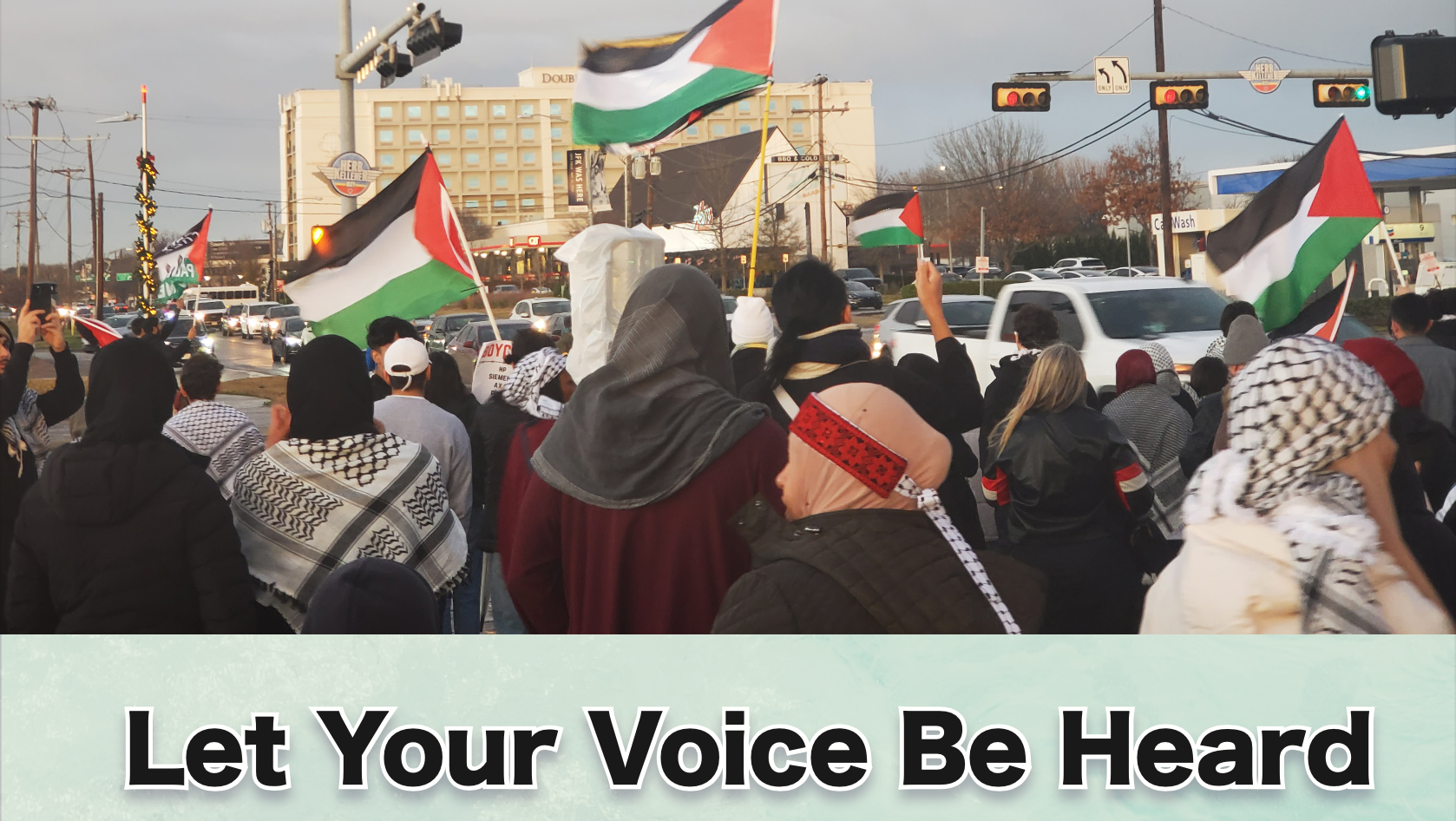
It’s been 3 months and 75 years. Hostilities against civilians in Gaza have become a topic of global uproar in recent months since attacks in the area increased in intensity. While many people have used the crisis to point fingers at who started it all or what standing for one side means for the other, the conflict boils down to one central, irrefutable point: Palestine is dying.
So, what can you do about it?
As a student sitting around 7,000 miles away from the heart of the conflict, it may seem futile to do much more than feel bad about the whole thing. You have classes to attend, after all. Maybe you even have parents who don’t understand what you’re worked up about, or bosses and customers at work who proudly tell you how wrong you are for standing with Palestine. Or maybe you just think that you’re not the kind of person who can help. However, no matter your background or how knowledgeable you are about the conflict, you can make a difference.
Awareness is essential and easily achieved. Journalists based in Palestine like Motaz Azaiza and Bisan Owda, who have documented the genocide for more than 100 days now, have routinely called for one thing above any other aid — to keep talking. Social media platforms like Instagram have been suppressing posts related to the conflict, flagging posts as inappropriate and even hiding entire accounts to keep documentation of Palestinian lives away from users’ main feeds. Many of those living within Gaza urge everyone to search for these journalists’ pages manually, and to share their content to stay informed and raise awareness of what these people face, despite the content being hidden. Being Palestine’s global voice has been essential to give their lives a spotlight and urge anyone with the power to help them to do so.
In addition to being a young adult gracing social platforms with your presence, you may also be a young adult with money. However much or little you have of said money, you can be smart about where it goes. Boycotts in favor of the Palestinian cause have been one of the most widespread methods of supporting Gaza by undermining companies that actively fund its destruction. And it works. Several well-known companies have come under fire for siding with Israel in one way or another — Starbucks for suing its workers’ union after it announced a pro-Palestine stance, Puma for sponsoring the Israeli football team, Zara for releasing an ad campaign seemingly referencing civilian struggles in Gaza, and so on. These companies have been heavily criticized by consumers for their stance, and some have been forced to make changes amid the massive backlash. Starbucks has seen an $11B drop in value and introduced campaigns like half-off drinks and using personal cups to try to bring back their former customers and encourage revenue. Puma has also terminated their sponsorship for the Israeli team, and Zara made an apologetic statement about their campaign before removing it entirely. While many of these companies continue to claim a neutral, not-on-anyone’s-side stance, they have faced significant losses and permanent reputation damage for supporting Israel and refusing calls for a ceasefire in Gaza. While changes made in response to backlash are a step in the right direction, many consumers stand their ground on continuing the boycott as a warning to stand on the right side of history in the first place. Your money matters, and putting your money where your mouth is makes a difference.
On a smaller scale, the events in Palestine have been a hot topic on our campus. Back in October, in the midst of ongoing bombings in Gaza, President Benson released a statement addressing the UTD student and faculty body about the conflict. The message intended to convey, in President Benson’s words, “shock, horror, grief and sadness” and his pride in “a campus where everyone has a place.” However, this email was met with outrage from the community as soon as it hit inboxes across campus: while structured as a message of support, the letter was unmistakably lacking in support for the civilians in Palestine and students whose communities were being affected as a result. To say his heart was “broken for the people of Israel” without a single mention of the tragedy in Palestine leading up to the October 7th attack that provoked this statement was, at best, a tone-deaf attempt to skirt around a genocide.
This statement was also a spark in increasing campus involvement in the Palestinian cause. Students for Justice in Palestine, a coalition on campus responsible for organizing awareness events, released a widespread response to President Benson’s letter calling the statement out as a “dangerous endorsement of the ongoing ethnic cleansing” in Gaza. The organization has also hosted walkouts to bring supporters together in solidarity, “Chalk the Block” as a response to UTD’s removal of the Spirit Rocks, and other events calling for UTD to address the negative impact of their statements. These events hosted by SJP are just one example of how impactful a student’s voice can be — because it’s never just you. The campus walkouts, in addition to other local protests, have seen massive crowds standing in solidarity with Palestine and continued to encourage the awareness Palestinian civilians have routinely asked for.
Disruptive action has been at the core of these events. More recently, President Biden’s visit to Dallas in early January was met with vehement protest due to his continued military support and funding towards Israel. Twelve protesters were arrested at the scene, inciting another protest demanding their release. These recent events serve as a strong reminder of your rights and abilities as a student, and on a broader scale as a civilian. You have the right to protest, the right to be loud about your solidarity and anger at violence against civilians on a global scale, and the right to fight back when these rights are threatened by people who are meant to represent you.
With nearly 30,000 civilian casualties, catastrophic starvation levels, and over 100 days of targeted violence from Israel, Palestinian civilians continue to fight for their lives. On the other side of the globe, we have seen widespread support for their cause, with everything from targeted boycotts to back-to-back protests emphasizing the scale on which we can stand for the right thing. Your life matters, as do the lives of other civilians in your communities. Now, as we continue to go about our daily schedules, those lives are under constant threat of being lost.
So, what will you do about it?

Comments